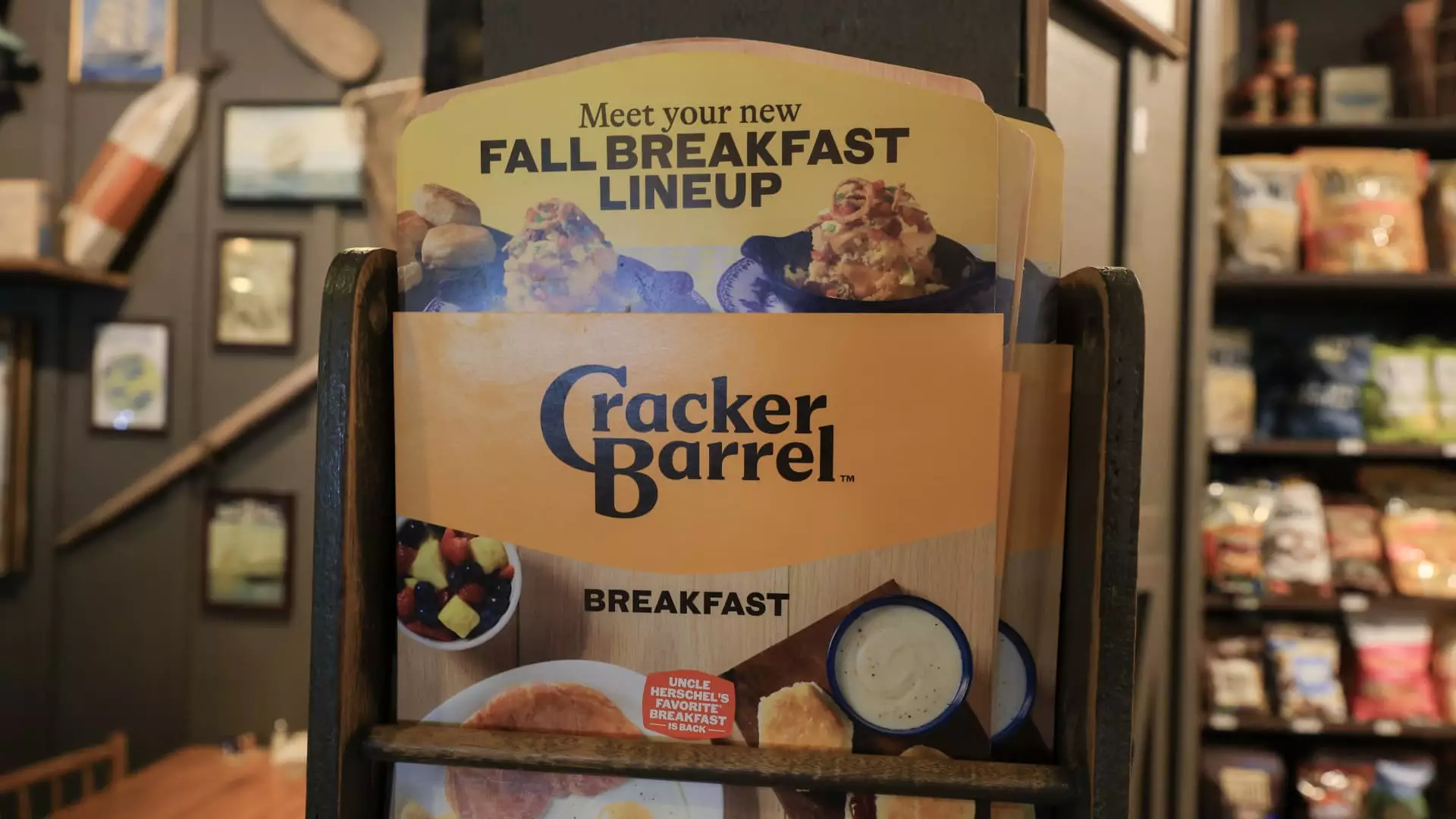The recent rebranding of Cracker Barrel offers a stark reminder of how corporations manipulate symbols to project an image of modernity without genuinely challenging traditional values. When the company unveiled its new logo—stripping away the iconic image of a man leaning against a barrel and replacing it with simple text on a bright yellow background—it was hailed as a bold step toward revitalization. But beneath this seemingly progressive veneer lies a calculated move that glosses over the core identity that made the brand beloved by its core customers. It’s a superficial attempt to appear “fresh” and “inclusive” while maintaining the status quo rooted in nostalgic nationalism and conservative aesthetics.
The removal of “Old Country Store” and the absence of any overt imagery hint at an effort to disengage from unambiguous American symbolism—something conservatives typically hold sacred. Instead, the company emphasizes “diversity” and “modern appeal,” but these words often serve as code for appeasing cultural trends rather than genuine respect for diverse traditions. This approach creates a disconnect: the brand outwardly claims to respect its history, but internally, it silently promotes a broader, more abstract corporate identity that ultimately erodes the original brand ethos.
The Political Underpinnings of Corporate Reform
Cracker Barrel’s rebranding saga exemplifies how corporate actions are increasingly influenced—whether explicitly or subtly—by political and social pressures from the liberal-leaning mainstream and activist circles. The criticism from social media conservatives highlights a fundamental discomfort with what they see as an abandonment of American heritage in favor of virtue signaling. Figures like Donald Trump Jr. leverage these aesthetic changes to galvanize their base, framing these shifts as part of wider cultural “wokeness.”
This phenomenon reveals the deeply politicized nature of contemporary branding. Companies now find themselves caught in a cultural crossfire, where even minor logo tweaks are scrutinized as ideological statements. The underlying message: corporations are abandoning traditional American values under the guise of inclusivity. While it’s tempting to dismiss this as mere virtue signaling, it exposes a broader trend—businesses are increasingly aligning their public faces with the dominant social narratives, often at the expense of authentic cultural roots.
The Illusion of Progressive Progress and Consumer Backlash
Contrary to the optimistic claims of corporate leaders like Sarah Moore, who insists that the brand’s “rich history of country hospitality” remains unchanged, many consumers perceive these changes as hollow and disconnected from genuine tradition. The criticism of interior redesigns for becoming “sterile” and “modern” underscores a longing for authenticity—something that corporations seem to neglect in their pursuit of superficial modernity.
There is also an undeniable economic calculation at play. Cracker Barrel’s modest market capitalization signals its struggles to compete with flashier, trendier chains that embrace diversity and modernization more openly. Yet, these efforts risk alienating long-standing customers who value the brand’s nostalgic Americana. The disconnect between these efforts and customer expectations signals a larger failure of corporate understanding: symbols matter. When brands treat them as mere marketing tools rather than carriers of cultural identity, they risk losing their soul—a fact that sharply critiques the superficiality of many modern rebrandings.
The Predicament of Corporate Wokeness: A Smokescreen for Strategic Conservatism
The backlash illustrates how companies are often engaging in performative wokeness rather than genuine social progress. While executives loudly tout values of inclusivity and diversity, their underlying motives might be rooted in protecting market share within diverse demographic segments. This hypocrisy becomes painfully evident when these same companies face conservative critics who see their efforts as capitulation to cultural trends rather than authentic change.
Cracker Barrel’s case echoes previous instances—such as Bud Light’s controversial partnership with Dylan Mulvaney or American Eagle’s social media campaigns—that demonstrate how brands oscillate wildly based on social media storms. These swings highlight the fragile nature of corporate reputation in a polarized landscape where symbolic gestures often substitute for meaningful change. The problem is that this strategy breeds cynicism: consumers start questioning whether brands stand for anything real or are just pawns in a cultural battle.
The company’s superficial rebranding signals a larger malaise within corporate America—one where symbols are exploited not for authentic cultural dialogue, but to navigate political minefields. The apparent shift towards diversity and modernization is less about progress and more about appeasing a changing social climate—often at the expense of authentic tradition. As society becomes increasingly divided, the strategic use—and sometimes misuse—of symbolism exposes the limits of corporate virtue signaling and questions whether these efforts are truly aimed at fostering understanding or merely at preserving profitability in an increasingly volatile cultural landscape.

